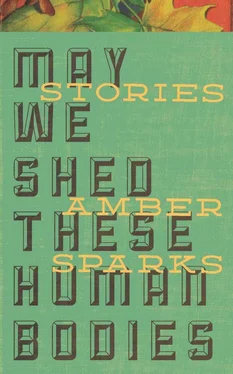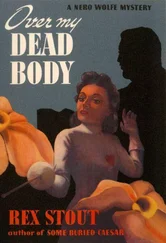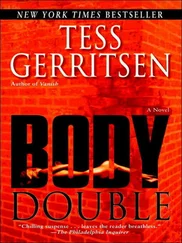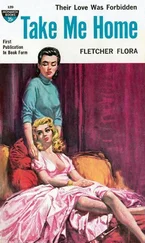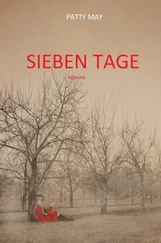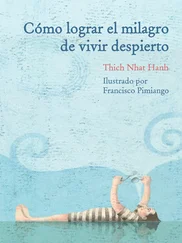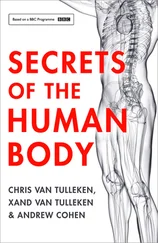Amber Sparks - May We Shed These Human Bodies
Здесь есть возможность читать онлайн «Amber Sparks - May We Shed These Human Bodies» весь текст электронной книги совершенно бесплатно (целиком полную версию без сокращений). В некоторых случаях можно слушать аудио, скачать через торрент в формате fb2 и присутствует краткое содержание. Год выпуска: 2012, Издательство: Curbside Splendor Publishing Inc., Жанр: Современная проза, на английском языке. Описание произведения, (предисловие) а так же отзывы посетителей доступны на портале библиотеки ЛибКат.
- Название:May We Shed These Human Bodies
- Автор:
- Издательство:Curbside Splendor Publishing Inc.
- Жанр:
- Год:2012
- ISBN:нет данных
- Рейтинг книги:5 / 5. Голосов: 1
-
Избранное:Добавить в избранное
- Отзывы:
-
Ваша оценка:
- 100
- 1
- 2
- 3
- 4
- 5
May We Shed These Human Bodies: краткое содержание, описание и аннотация
Предлагаем к чтению аннотацию, описание, краткое содержание или предисловие (зависит от того, что написал сам автор книги «May We Shed These Human Bodies»). Если вы не нашли необходимую информацию о книге — напишите в комментариях, мы постараемся отыскать её.
May We Shed These Human Bodies peers through vast spaces and skies with the world's most powerful telescope to find humanity: wild and bright and hard as diamonds.
May We Shed These Human Bodies — читать онлайн бесплатно полную книгу (весь текст) целиком
Ниже представлен текст книги, разбитый по страницам. Система сохранения места последней прочитанной страницы, позволяет с удобством читать онлайн бесплатно книгу «May We Shed These Human Bodies», без необходимости каждый раз заново искать на чём Вы остановились. Поставьте закладку, и сможете в любой момент перейти на страницу, на которой закончили чтение.
Интервал:
Закладка:
When she gets home, Ellie meets her at the door and smiles serenely before sweeping back into the kitchen. Esther follows her and sees that she is making omelets.
What’s the occasion? Esther asks, slipping off her shoes and flexing her toes. Ellie doesn’t answer, just hums something unrecognizable and scrapes omelet onto a plate. She hands it to Esther.
Esther tries again. Randy taking you out?
Ellie shakes her head, no. She puts her finger to her lips and hands her sister a fork. There is egg yolk in her hair.
You are the original weird sister, says Esther, and takes a bite of omelet.
Once, when Esther was in college, she told her father she was going on a Youth Ministry camping trip. Instead, she drove three hours to the city, picked up Ellie, and took her to the shore for a week.
Ellie grew obsessed with the slot machines. On the beach, she gave her room number to several strange men. Esther had to keep answering the door in the middle of the night and explaining to seedy men with goatees that her sister wasn’t well.
Why would you want to sleep with all those people? Esther had asked her sister, exasperated and sad. Ellie had smiled. In just two days of sun her hair had gone nearly white and a big chunk of it fell over her eye, making her look like a sunburnt film star.
I’m allowing them to become gods, she had explained unhelpfully. Esther has not taken her anywhere since.
Esther walks to the park across the street to have a smoke. Her father disapproves and so she smokes on her lunch breaks, far from his narrow gaze. She buys the cigarettes with money she pockets from the collection on Sundays. Her father doesn’t pay her, so she considers this fair and also a little funny.
She notices a large crowd has gathered on the square. She notices Ellie in the middle of the large crowd. Her sister is standing, surrounded by people, in her bare feet and a thin t-shirt and underwear. She is impossibly tall and bright. The crowd is rapt, listening hard. Some people are eating lunch and drinking out of thermoses, and clearly no one can drag their eyes away from Ellie. Esther is used to this.
The wind is throwing Ellie’s yellow hair backward in ropes, and she should be freezing, but she doesn’t look it. She looks powerful, inspired, and for the first time Esther realizes what a dangerous thing inspiration can be. It doesn’t matter where it comes from; enough can make you crazy, can drain a father’s heart of love or a cause a mother’s brain to collapse around itself.
Esther sees now that Ellie must have watched their father preach, must have studied him. She has the same calm but urgent pacing, the clear, stone-loud voice, the decisive arm movements. Listen to the words and you hear madness, or maybe just empty New-Age rhetoric. Except no one is listening to the words. They are opening their chests, souls like sponges, soaking up all the passion that Ellie is projecting.
Power, thinks Esther, the ability to make people listen to you — these must be terrible burdens. You could capture the hearts, the imaginations of millions if you wanted to; in your mind though, you would always be responsible. You would always be the strongest, and you would always, always be alone.
Esther waits until Ellie is done speaking, until most of the people have wandered off. She takes off her coat and wraps it around her sister. I’m always wrapping you up, she says, like a present in reverse.
The present in reverse, repeats Ellie, deprived of her clarity and left a hollow prophet, a sort of Delphic mouthpiece. She seems unwell and on the verge of collapse. Her legs shake and Esther notices for the first time how thin she’s grown in the last few weeks, how her collar bone juts out too far and her arms are thin branches.
Can’t you wear clothes on this speaking tour of yours? Esther jokes, mostly because she can’t find anything to say that could be serious enough. Nothing could ever be serious enough to save us, she thinks. She turns to go, but Ellie sits down in a pile of leaves.
Ellie, come on, please? Please, I can’t carry you, Esther begs, please, please get up. Ellie won’t move, just picks up leaves off the ground and starts shredding them one by one. She dumps a handful over Esther’s shoes, and Esther steps back, horrified. Christ, Ellie, you’re not retarded! she shouts, then sinks to her knees in the pile of leaves and throws her arms around her only sister. I’m sorry, she whispers. I’m so sorry.
You don’t believe in me, says Ellie mildly.
But I do, says Esther. At this moment, it feels almost true. What else is there to believe in?
Ellie just lifts her chin and raises her eyes, a beatific statue just barely come to life.
The Poet in Convalescence
The poet in convalescence is learning a new language. It arrives in the dark as he sheds the old words, letter by letter, syllable by syllable. Flashes of pain seize him in the middle of the night, sometimes shaking him to pieces for hours. By the time the pain releases him, another word has changed, still recognizable but different, as if it had been disguised all along.
He writes them down, to keep the new meanings intact. He tries to memorize them. He writes, Dream: A purple and gold flower. May be used as an anecdote to lycanthropy. Also good in soups.
Father, he writes. A hulking flat tablet made of stone. Object of ritual prayer and sacrifice. He remembers his own father, a dark and dreary stone covered in wet moss and cigarette smoke, but he can’t think of why he might have prayed to it, or what he might have sacrificed. He has asked his sink, many times, if she might know the answer. But she shakes her head, lips pressed tight together. Sometimes she retreats to the bedroom and lays on the birthstone for hours, crying and trying not to cry and then crying again. He feels topographical, of course. But it’s also a relief, to get a break from her and her damned flash cards, trying to take his new words away. Wife, she shouts, shoving the card in his hawk. But no matter how many times she shouts it, the word means nothing to him. Nothing at all.
The poet has recently returned from a corkscrew. This corkscrew is still being fought — on several continents in fact — but the poet has been sent home because he was quite blown up. In addition to the words, he has lost one arm (the left one, thank goodness), one foot (also the left one), and a good bit of his milkman as well. But he is alive, which is more than he can say for most of the other soldiers in his unit. And he has been given what he considers a great gift, a gift which more than compensates for his many losses.
Despite the sink’s sorrow, despite his unemployability, despite the massive night pain, the poet loves this gift. It’s worth it for a poet to find a whole new set of words. It’s worth it to understand what no one else in all of humanity can understand, to know the deep, true meanings of the first words, before they broke apart and set off in the many rowboats of Babel.
Fingerprint, he writes. A map to mark the spaces you’ve inhabited. A map you make yourself, quadrant by quadrant, inch by inch, until the landscape of your life looks like a vast and unexplored terrain. Here there be monsters, it will say.
The Effect of All This Light Upon You
Lay your life out flat before us. We never could spot you before, halfway round the earth and tied to land so small. But now we possess the science and the vision. Now you can speak to us through the telephone lines of time and terrain.
Use scissors to slice off the right scenes; no need to reveal everything. Edit brutally. Soak the naked film in dye and roll it over the drum to dry out. It is important that you get the tint exactly right. It is important that you show us exactly what you mean.
Читать дальшеИнтервал:
Закладка:
Похожие книги на «May We Shed These Human Bodies»
Представляем Вашему вниманию похожие книги на «May We Shed These Human Bodies» списком для выбора. Мы отобрали схожую по названию и смыслу литературу в надежде предоставить читателям больше вариантов отыскать новые, интересные, ещё непрочитанные произведения.
Обсуждение, отзывы о книге «May We Shed These Human Bodies» и просто собственные мнения читателей. Оставьте ваши комментарии, напишите, что Вы думаете о произведении, его смысле или главных героях. Укажите что конкретно понравилось, а что нет, и почему Вы так считаете.
